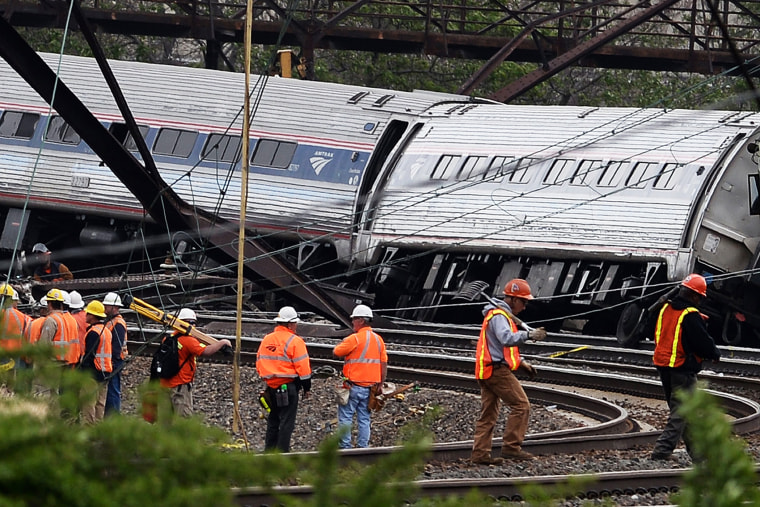The Federal Railroad Administration (FRA) is not waiting for answers as to what caused last week's deadly train crash before taking action, ordering Amtrak this weekend to immediately improve safety along its Northeast Corridor.
Among the actions, which the FRA is set to announce through Emergency Order early this week, are restricting the speed of northbound trains via Automatic Train Control, which is already implemented for southbound trains, close examination of curves along the path, and increasing signage to alert engineers and conductors of speed limits.
"We are continuing to work with the NTSB to understand exactly what happened on Tuesday so we can prevent this type of devastating accident from ever happening again," U.S. Transportation Secretary Anthony Foxx said Saturday.
These are just "initial actions," the FRA stressed, adding that additional steps will come "as we learn more from the ongoing investigation."
Speed has been a huge factor into last Tuesday's deadly derailment just outside Philadelphia, in which Amtrak Regional 188 accelerated into a curve at 106 mph in the minute before it crashed, ultimately killing eight people and injuring more than 200. The speed limit was just 50 mph.
The National Transportation Safety Board (NTSB) has asked the FBI to also look into a report of an object striking the train's windshield right before the crash.
“We’re looking at everything at this point,” Robert Sumwalt of the NTSB, who is leading the investigation, said Sunday. "We have not ruled anything out, nor have we ruled anything in," he said on Fox News Sunday.
The train's engineer, 32-year-old Brandon Bostian, who was interviewed by the NTSB, does not remember the moments leading up to the crash; Philadelphia Mayor Michael Nutter has said Bostian's "reckless" behavior played a role in the crash, whether his action directly caused the derailment or not. “I don’t think that any common sense, rational person would think that it was okay to travel at that level of speed knowing there was a pretty significant restriction on how fast you should go through that turn,” Nutter said at Thursday news conference.
However "reckless" an engineer, however, experts have said the crash could have been avoided altogether had a thorough transportation system known as Positive Train Control (PTC) been installed. Right now, PTC is only operating between New Haven, Connecticut and Boston. PTC uses satellites to track a train's movements, with the power to prevent accidents. If a train is moving too fast, for example, the computer warns the crew. If the crew doesn't slow down, the computer can override the human and slow the train down remotely, ridding human error entirely.
Full implementation of PTC is the "most important step that must be taken to improve safety," acting Federal Railroad Administrator Sarah Feinberg on Saturday.
Positive Train Control, Sumwalt said on Sunday, “would have prevented this accident."
